Don’t let the new school year sneak up on you; have a plan!
Read on to find out what you should consider when homeschooling planning.

This article contains affiliate links to things that you might like.
Homeschool Planner
A plan helps us start the school year off on the right foot.
You have your supplies ordered, and you know what to expect.
You’ve done the research, and now you are ready to move forward.
No classroom teacher begins the year without a plan, and homeschooling is no different.
If anything, you have more to consider than a classroom teacher because you have the freedom to tailor your schooling to the needs of your child.
A classroom teacher is handed her books for the year, her school calendar, and her special activities like music and PE–none of that is debatable.
Your ability to plan is an asset, so how do you use it?
When should you start planning?
How much should you plan?
And what do you include in that plan?
We’ve got the answers right here.
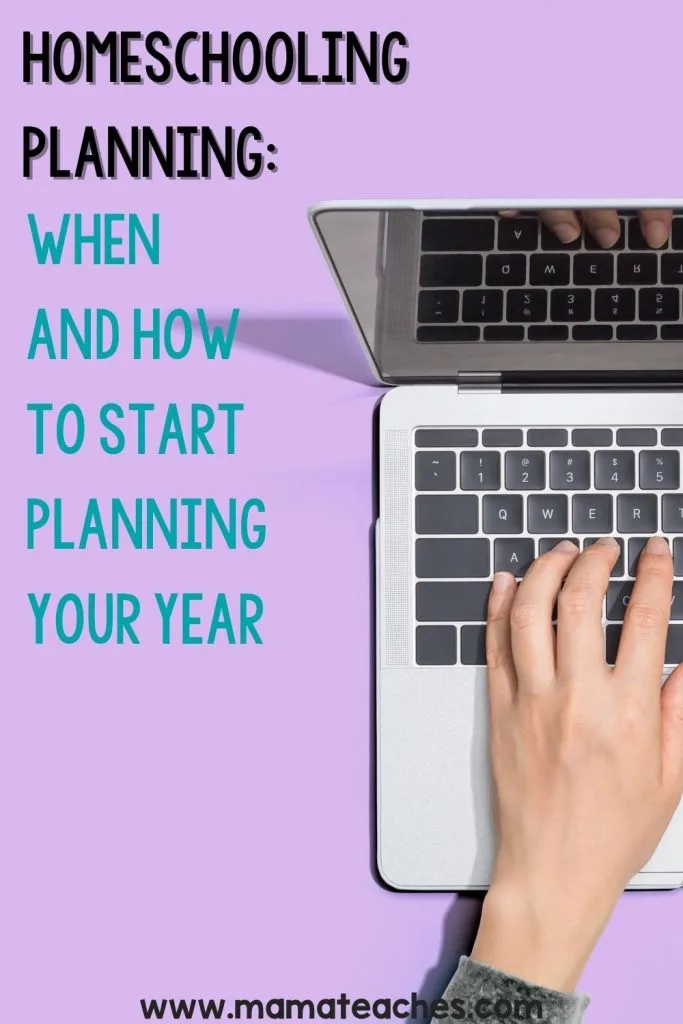
When You Should Plan
If you have the luxury of knowing that you’ll homeschool for the upcoming year, you might as well start planning early so you can complete that plan in manageable chunks.
If you plan to start school in August or September, you may want to think about curriculum and online courses as early as February.
By then your child has more than half the current school year under his belt.
You’ve seen what is working and what is not the best fit.
If you begin poking around into your options now, you’ll keep your summer as an actual break from all things school.
Of course, you don’t have to start early.
If you are schooling independently (as in you are your child’s primary teacher and he is not taking outside classes), you could begin planning about a month ahead.
You’ll need this amount of time to allow for the ordering and shipping of your books and supplies.
Most homeschoolers will chart a middle course when it comes to homeschooling planning.
Perhaps the school year is just too busy to even think about next year.
The summer months may be your best time to plan.
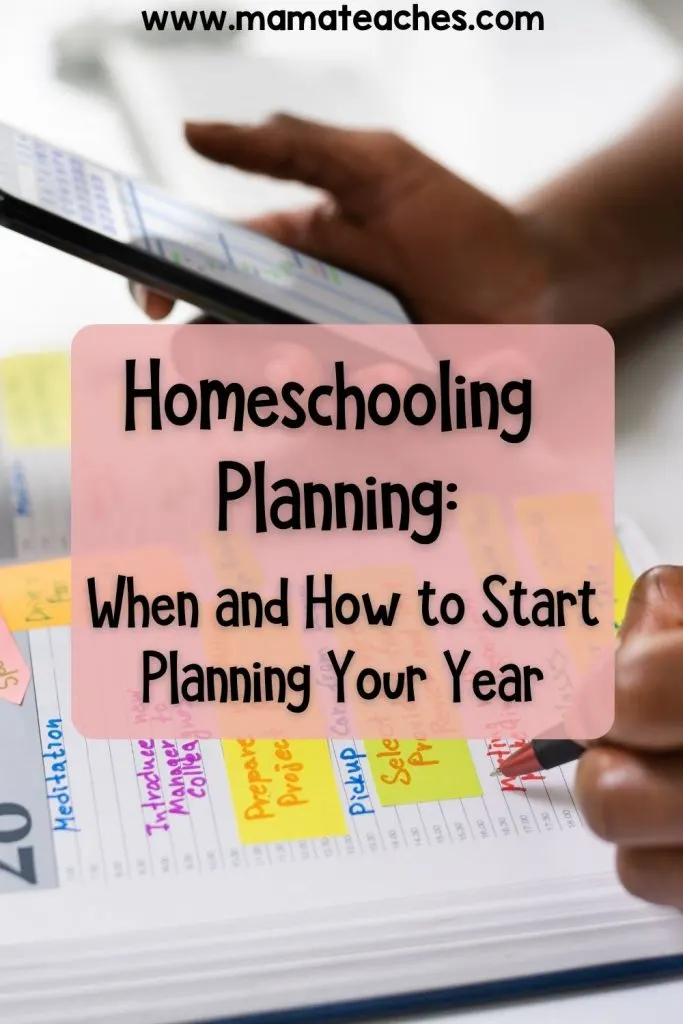
How Far in Advance to Plan
The majority of curricula last a year, so it makes sense to plan for a whole school year.
But you don’t have to do it this way.
You could choose to plan a semester at a time.
This is especially true if you like the unit study approach.
You can break your school year into smaller chunks along the length of your unit studies.
You can even take an unconventional approach and take a short break after each unit (instead of a long summer break).
How to Plan Your Homeschool Year
Before you write in your homeschool planner, figure out your yearly calendar.
Your first step is to check with your state requirements (you can find your state laws listed on the Homeschooling Legal Defense Association website or by contacting your county homeschooling office).
Some states require that you keep a traditional school year from September to June.
Others ask that you complete 180 days per year but they don’t care which months you school.
Still, others provide little to no guidelines in this area.
If you have the freedom to pick your calendar, consider the rhythms of your family.
Do you take family vacations?
If so, which months?
Would you prefer to take a long holiday break in December and then make up that time elsewhere?
Would you function better with minibreaks across the whole year or one long break in the year?
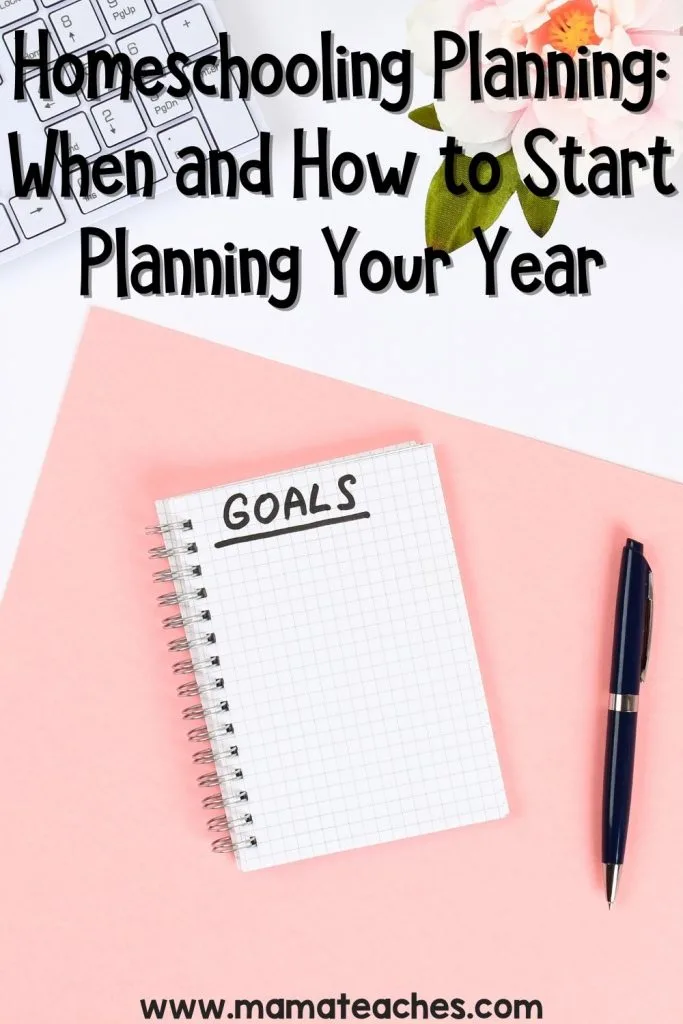
How to Pick the Right Curriculum
With so many homeschooling curriculum choices available, this part of homeschooling planning can be the most daunting.
Here are some things to keep in mind when choosing what to do:
Take an Inventory
What is your child doing for each subject right now, and is it working?
If she is thriving with a certain approach, why change it up?
Figure out what you need to change and focus on those areas only.
Make a Wish List
What are you looking for in a curriculum?
Make a list.
Do you want something religious or secular?
Online or in print?
Does it need to be low-cost or free?
What is your child’s learning style?
Consider these when picking a program.
See It in Action
Do you know someone who is using this program?
Ask if they will walk you through it.
Even better, see if they will lend it to you for a week so you can try it with your child.
If this is not possible, see if you can download a sample or flip through the book in person before you buy it.
Check Out Reviews–But Not Too Many
You can lose yourself down a rabbit hole if you read too many online reviews, so don’t go overboard here.
Usually, after reading 3 reviews and visiting the publisher’s website, you have the gist of the program.
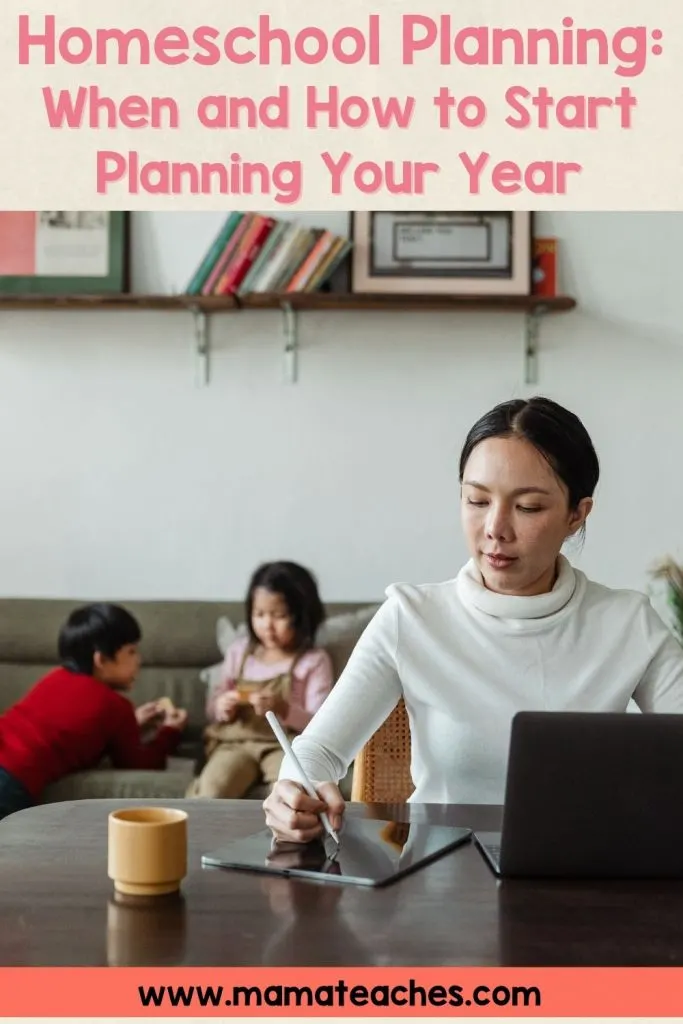
How to Plan Out Classes and Activities
For most homeschoolers, homeschooling planning involves more than just books.
Likely your child is involved in outside classes and activities.
Keep these in mind as you plan your year.
Check out the registration deadlines for upcoming classes.
When you make your weekly schedule, distribute the school work around your child’s activities.
It’s not reasonable to expect a full day of schoolwork to be completed on Wednesday when your child has co-op, piano, and football.
Keep Your Child in Mind
School is work, that’s true, but it doesn’t have to be drudgery.
What are your child’s interests and passions?
How can you hook traditional subjects into those to make learning more enjoyable?
Consider learning about history through Minecraft, studying physics using Legos and K’Nex, or practicing handwriting with sentences about dinosaurs.
Does your child have learning or behavioral challenges?
These are also important to keep in mind.
With learning challenges, consider the skills you’d like to work on.
Make sure that what you choose to cover is actually helping your child move forward in his skills.
Allot time for therapies and count that as part of the school day.
If your child has behavioral challenges, think through your approach.
Would outside accountability be helpful?
Check out classes or tutors.
Does your child’s behavior deteriorate when she gets frustrated?
Plan for frequent breaks during the day.
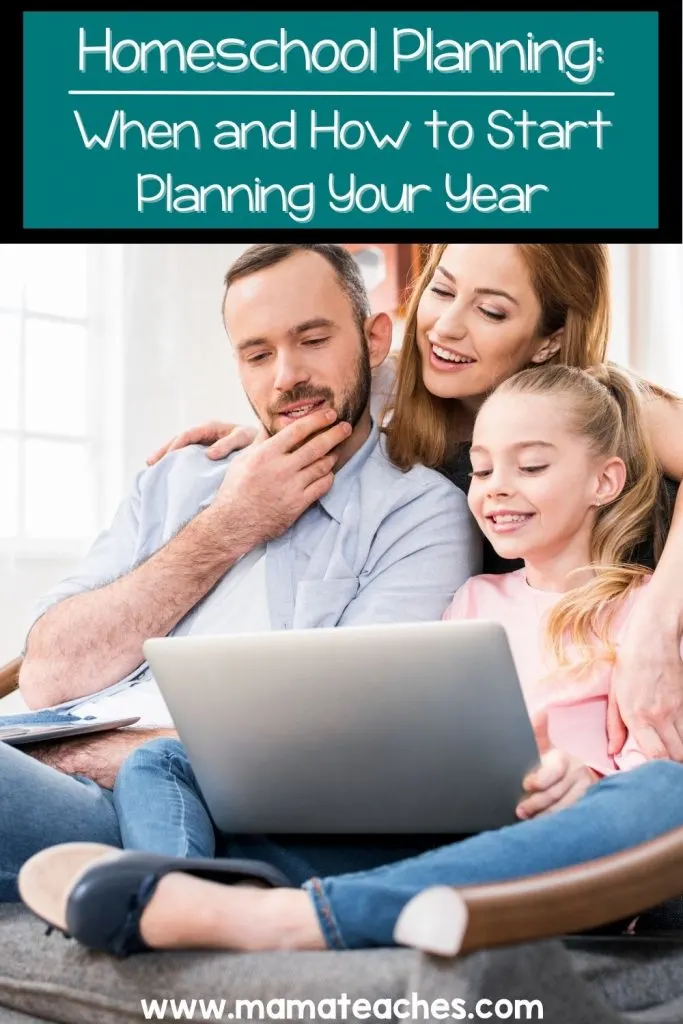
When and How to Do Homeschooling Planning
This coming school year can be your best yet with a little homeschooling planning.
You’ll start the year with confidence and excitement–and those feelings are contagious!
